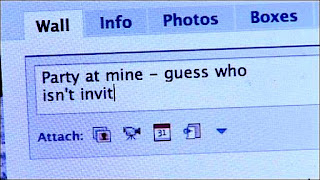People of a certain age could be forgiven for not even knowing
who Mary Seacole is. She was a nurse (though the term is used loosely here and
she didn’t use it) who went to the Crimea to assist soldiers on the battlefield
at the same time that Florence Nightingale was achieving fame for her work in the
hospital at Scutari. She was notable for her determination: having been refused
the support of the War Office for the journey (perhaps because of her age; she
was approaching fifty) she raised funds herself for the voyage and established
a ‘British Hotel’ where casualties were treated.
 |
| Mary Seacole's memoirs |
Mary Seacole was an amazing character to be admired for her
courageous career. But her importance in terms of lives she impacted on was comparatively
minor, and one would expect her to be almost forgotten – and certainly not
mentioned in primary schools. However, she made it into schemes of work related to the National Curriculum
from about 1992 because she was considered a black role-model, having been born
in Jamaica and being one-quarter black.
Certain educationalists of a non-critical bent then posed
the question, why was she not as famous as Florence Nightingale? Simple to say:
the contemporary white establishment must have been racist. Schoolchildren are
now solemnly taught by many teachers that the reason she’s not as famous as Florence
Nightingale is because she was black.
Obviously there are particular reasons for Florence
Nightingale’s enduring fame in comparison with Mary Seacole. Nightingale questioned
and challenged relentlessly, and tirelessly engaged with politicians and
royalty to ensure that not only military hospitals, but all hospitals followed the
hygienic practices necessary for them to be houses of healing rather than
slaughter. She is without question the parent of modern nursing, and deserves
to be famed then, now, and indeed as long as humans need healthcare.
 |
| Nightingale's Notes on Nursing - the first book of its kind |
Consequently, as a minor character, Mary Seacole does not
need to be discussed at primary level, and the Government are right to be
questioning her status. However, you would be hard pressed to gain historical
perspective from the Independent’s report, which quotes the black campaigner
Darcus Howe as saying that the proposal to reduce her position in the curriculum
“is a punishment for the uprisings of summer 2011” (the expression “uprisings”
being what everyone else calls “looting and riots”).
Howe’s foolishness speaks for itself. But it is of more
concern when the Independent tells us with its own voice that Mary Seacole “was
as famous as Florence Nightingale during her lifetime”. This is utterly
absurd, as this Google ngram shows (which computes all mentions in published
books from 1850 until the year of Seacole’s death).
(The blue line, if you can't spot it, is flatlining at the bottom.)
This controversy is not just about falsification of history, but about a wilful ignorance that the contribution of one human being to the world can be different in value from that of another. The Labour MP Diane Abbott’s words say it all: “Students in this country already learn about traditional figures such as Winston Churchill, Oliver Cromwell and Florence Nightingale. Mary Seacole is simply another such important individual. Not of less significance and certainly not expendable.”
This controversy is not just about falsification of history, but about a wilful ignorance that the contribution of one human being to the world can be different in value from that of another. The Labour MP Diane Abbott’s words say it all: “Students in this country already learn about traditional figures such as Winston Churchill, Oliver Cromwell and Florence Nightingale. Mary Seacole is simply another such important individual. Not of less significance and certainly not expendable.”
One day Diane Abbott could be a member of a Labour government.
I wonder who she will want booted out of the curriculum – Churchill, probably. (Ironically
Cromwell, another of the names she mentions as being of no more significance
than Seacole, currently has no place in the primary history curriculum and
schoolchildren already know more of Seacole than of him).
The best service primary History teachers can do is to teach
children to be questioning of motives – we already teach them that historical sources
vary in value, but we must also show them that modern politicians and modern
newspapers are ready to spin and twist facts in order to make the past fit into
their own view of the present.
Follow @7000hours



